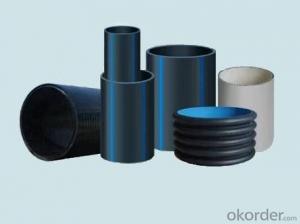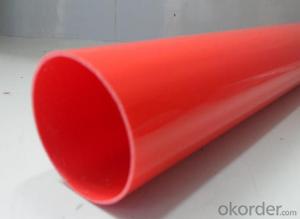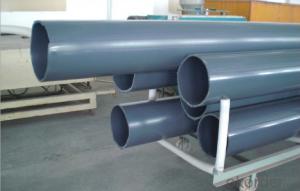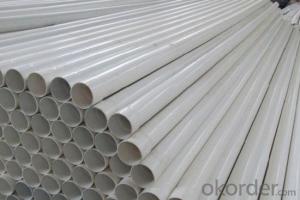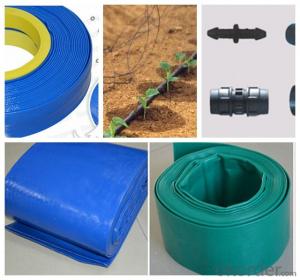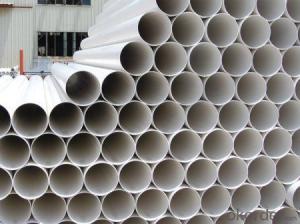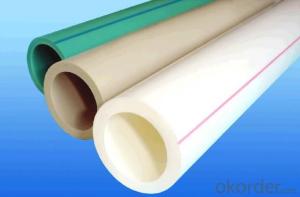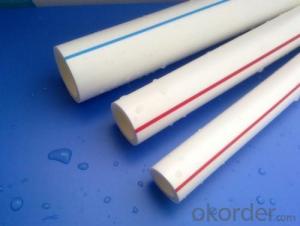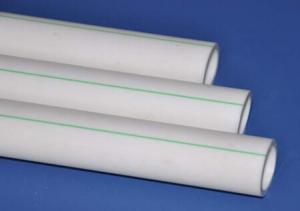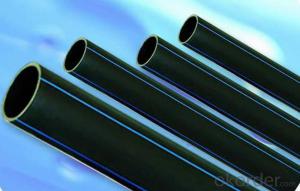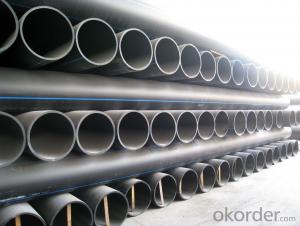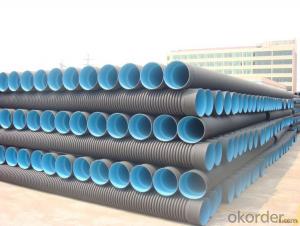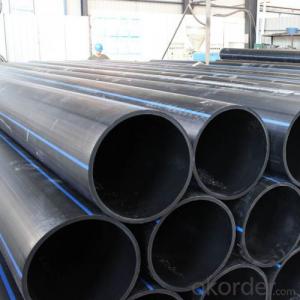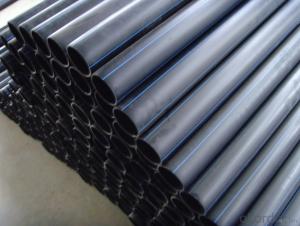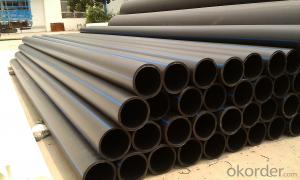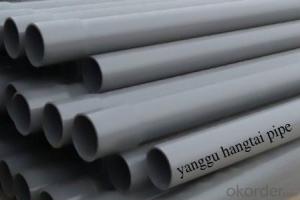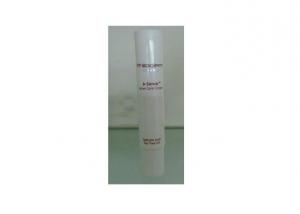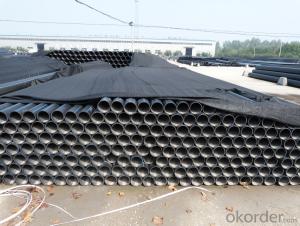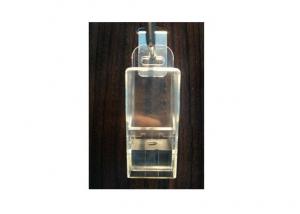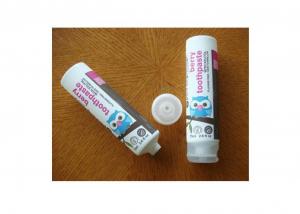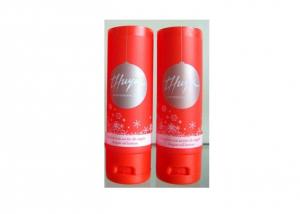HDPE Pipe PE100 Plastic Tubes
- Loading Port:
- China Main Port
- Payment Terms:
- TT OR LC
- Min Order Qty:
- -
- Supply Capability:
- -
OKorder Service Pledge
OKorder Financial Service
You Might Also Like
Specifications
HDPE pipe
1.Model: DN16mm-DN1200mm
2.Material: PE80, PE100
3.Press level: 0.4MPa-1.6MPa
Features:
Model: DN16mm-DN1200mm
Material: PE80, PE100
Press level: 0.4MPa-1.6MPa
Color: black, with blue strip
Executive standard: ISO4427 EN12201 ASTMF714 AS4130 GB/T13663
Length: 4m,6m and 12m, or as your request
HDPE pipe Performance and Features:
1. Environmental Material.
HDPE is a kind of no-toxic, tasteless and unharmful chemical material, and HDPE PIPE, inherits those typical features nicely.
2. Good Flexibility.
When it is used in dredging pipe, the rubber flexible connectors can be saved because of its good flexibility.
3. Low Hydraulic Resistance.
The smooth inner wall make the water transportation capacity improve more than 30% under the same condition.
4. No Leakage.
The technics of hot-fusion and electric-fusion make sure the the strength of welding point is stronger than the body pipe itself.
5. High abrasion performance.
Its wear resistance is 4 times as the steel pipe.
6. Anti-corrosion and crack growth resistance.
7. Long lifetime durable in use.
50 years at least.
8. Economy
Low delivery, installation and maintenance cost.
HDPE water supply pipe application
1. Water pipe network system for civil engineering.
2. Urban and rural drinking water pipeline.
3. Agricultural irrigation pipe.
4. Other industries related to liquid transportation, especially for corrosive liquid.
- Q: Are plastic tubes suitable for DIY projects?
- Yes, plastic tubes are suitable for DIY projects. They are lightweight, easy to cut and manipulate, and are available in various sizes and shapes. Plastic tubes can be used for a wide range of applications, such as plumbing, electrical wiring, crafting, and even as structural supports. They are generally affordable and versatile, making them a popular choice for many DIY enthusiasts.
- Q: Are plastic tubes suitable for pharmaceutical applications?
- Yes, plastic tubes are suitable for pharmaceutical applications. They are commonly used for packaging and dispensing various pharmaceutical products such as creams, ointments, gels, and liquids. Plastic tubes offer advantages like being lightweight, cost-effective, and easily customizable for different product sizes and shapes. Additionally, they provide good barrier properties to protect the contents from moisture, light, and air, ensuring the integrity and shelf life of pharmaceutical products.
- Q: I have a plastic container cage I D.I.Y.ed and was thinking of adding a few other D.I.Y.ed plastic containers to the cage but I need some tubes to connect them, I could buy some tubes but I wanted to see if anyone any ideas for cheap D.I.Y. tubes. If you can include links of examples it would be cool but don't worry if you can't. THANKS
- i dont know what all those abbreviations are but pex plumbing might be a cheap way to go, not sure.
- Q: Also if this isn't safe then how unsafe was it when some kid spilled a whole container of mercury on the floor in my class and started playing with it. Ya anyway i would never touch it.
- Your Hg is safe in the tube and MUCH safer than some kid plating with it with his fingers. The expression Mad as a Hatter comes from olden days when the felt on hats was applied with a mercury paste by workers using their hands
- Q: What are the different shapes available for plastic tubes?
- There are a variety of shapes available for plastic tubes, including round, square, rectangular, oval, and triangular.
- Q: How can you prove that the PVC plastic pipe is B1?
- PVC material is a kind of plastic decoration materials, PVC material is referred to as PVC (Polyvinyl Chloride, referred to as PVC) resin is a vinyl chloride monomer (Vinyl Chloride Monomer, referred to as VCM) polymerized thermoplastic polymers. Are made of PVC resin as the main raw material, adding anti-aging agent, modifier, through mixing, calendering, vacuum technology and. PVC is an amorphous polymer, crystal containing the crystallinity 5%--10% (melting point of 175 degrees).
- Q: Are plastic tubes suitable for transporting hazardous materials?
- No, plastic tubes are not suitable for transporting hazardous materials.
- Q: i connected a plastic tube about 7 or 8 inchs long onto a butane can im wondering if when i push down on the can and put a match near it can the fire go back into the can and make the can explode and if so how can i stop that from happening and y would it happened
- The fire in this case is a reaction between butane from the can and oxygen from the air. If either one is missing, there can be no fire. The fire cannot propagate back up the tube, since the tube will be filled with pure butane, meaning there will be no oxygen in the tube.
- Q: What are the advantages of using plastic tubes in the electronics industry?
- There are several advantages of using plastic tubes in the electronics industry. Firstly, plastic tubes provide excellent insulation properties, protecting delicate electronic components from electrical currents and preventing short circuits. Additionally, plastic tubes are lightweight and flexible, making them easy to install and maneuver within electronic systems. They also offer resistance to corrosion, moisture, and chemicals, ensuring the durability and longevity of electronic devices. Furthermore, plastic tubes are cost-effective compared to other materials, making them an economical choice for manufacturers. Overall, plastic tubes contribute to the efficiency, safety, and reliability of electronic systems in the industry.
- Q: Are plastic tubes suitable for sample collection?
- Yes, plastic tubes are suitable for sample collection as they are commonly used in various scientific and medical fields. They are cost-effective, easily disposable, and available in different sizes to accommodate different sample volumes. Additionally, plastic tubes are compatible with a wide range of samples including liquids, solids, and gases, making them versatile for sample collection purposes.
Send your message to us
HDPE Pipe PE100 Plastic Tubes
- Loading Port:
- China Main Port
- Payment Terms:
- TT OR LC
- Min Order Qty:
- -
- Supply Capability:
- -
OKorder Service Pledge
OKorder Financial Service
Similar products
Hot products
Hot Searches
Related keywords
